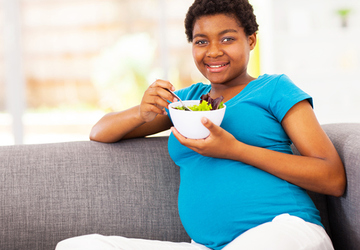Beginning the adventure of expecting a child enhances the focus on dietary essentials. An appropriate nutrition plan aids in safeguarding the well-being of the expectant mother and her unborn child. Understanding Pregnancy Diet Tips, integrating beneficial Foods for Pregnancy, and recognizing What to Avoid During Pregnancy is crucial in this journey.
Beginning the adventure of expecting a child enhances the focus on dietary essentials. An appropriate nutrition plan aids in safeguarding the well-being of the expectant mother and her unborn child. Understanding Pregnancy Diet Tips, integrating beneficial Foods for Pregnancy, and recognizing What to Avoid During Pregnancy is crucial in this journey.
Navigating the Nutritional Landscape During Pregnancy
Pregnancy demands a re-evaluation of dietary choices, focusing on nutritionally dense foods that support fetal development and maternal health. The diet during this period should encompass a variety of items from different food groups to ensure comprehensive nutritional intake.
The Key Nutrients for a Healthy Pregnancy

Proteins
Essential for the development of the baby, proteins should be a staple in the pregnancy diet. Sources include plant-based proteins like beans and lentils, as well as lean meats and eggs.
Carbohydrates
For sustained energy, whole grains and fiber-rich fruits and vegetables are vital.
Fats
Particularly important for the baby’s neurological development, sources of healthy fats include nuts, seeds, and fish.
Vitamins and Minerals
Critical nutrients like iron, calcium, vitamin D, and particularly folic acid must be included, either through diet or supplements.
Pregnancy Diet Tips
1. Diversity in Diet: Incorporate a wide range of fruits and veggies.
2. Hydration: Maintaining adequate hydration is key during pregnancy.
3. Meal Planning: Smaller, more frequent meals can help manage energy levels and mitigate nausea.
Foods for Pregnancy
It’s beneficial to focus on specific Foods for Pregnancy that are nutrient-rich and supportive of fetal development:
● Leafy Greens and Dairy: For essential calcium, magnesium, and iron.
● Lean Protein Sources: Such as chicken, turkey, and tofu, for building fetal tissue.
● Complex Carbohydrates: Including whole grains and legumes for energy and fiber.
● Fruits: Particularly citrus and berries, for vitamins and antioxidants.
What to Avoid During Pregnancy
Equally important is knowing What to Avoid During Pregnancy to protect the health of both mother and baby:
1. Raw or Undercooked Foods: These can harbor harmful bacteria and parasites.
2. Certain Seafood: Avoid high-mercury fish like shark and swordfish.
3. Processed Foods: High in additives and low in nutritional value.
4. Excessive Sugar and Caffeine: Limit to avoid potential health issues.
Integrating Exercise with Pregnancy Nutrition
Moderate exercise complements a healthy diet in pregnancy. It can improve mood, increase stamina, and reduce pregnancy-related discomforts. As always, exercise routines should be discussed with a healthcare professional.
The Significance of Whole Foods in Pregnancy Diets
Embracing Nutrient-Rich Whole Foods
Whole foods play a pivotal role in pregnancy nutrition, providing an array of essential nutrients in their most natural form. These unprocessed or minimally processed foods offer a wealth of vitamins, minerals, and other vital nutrients in a way that highly processed foods cannot.
Key Whole Food Choices
● Variety in Fruits and Vegetables: Emphasizing a mix of colors and types ensures a broad spectrum of nutrients.
● Unrefined Grains: Options like oatmeal, brown rice, and whole grain breads offer fiber and essential nutrients.
● Healthy Nuts and Seeds: Almonds, chia seeds, and flaxseeds, for instance, provide valuable fats and proteins.
Mindful Eating for Optimal Pregnancy Wellness

Principles of Mindful Eating
Mindful eating during pregnancy encourages awareness of the eating experience, helping to maintain a balanced diet and recognize the body’s hunger and satiety signals. This strategy contributes to effective weight regulation and enhances the delight in food consumption.
Practices for Mindful Eating
● Eating Without Distractions: Focusing solely on the meal helps in recognizing fullness.
● Savoring Each Mouthful: Leisurely consuming food improves the digestive process and the assimilation of nutrients.
● Attuning to Body Signals: Understanding and responding to hunger cues appropriately.
Addressing Dietary Challenges During Pregnancy
The Strategies for Coping with Morning Sickness
To mitigate morning sickness, small and frequent meals can be more manageable. Foods like ginger and certain herbal teas may also offer relief.
Navigating Cravings and Food Aversions
Balancing cravings with nutritional needs is key. Finding healthier alternatives or moderation strategies can be effective.
The Critical Role of Hydration in Pregnancy
Hydration’s Impact on Pregnancy Health
During pregnancy, it's important for a woman to drink enough water, as this benefits her own health and supports her baby's growth. It assists in nutrient delivery and waste elimination and can alleviate some pregnancyrelated discomforts.
The Effective Hydration Strategies
● Consistent Water Intake: Regular consumption of water throughout the day is crucial.
● Incorporating Water-Rich Foods: Cucumbers, watermelons, and other high-water-content foods aid in hydration.
● Tracking Hydration Levels: Using urine color as a guide to ensure proper hydration.
The Role of Superfoods in Pregnancy Diets
Integrating Superfoods for Enhanced Nutrition
Superfoods, known for their high nutrient density, are particularly beneficial during pregnancy. They offer a powerful punch of vitamins, minerals, and antioxidants, supporting both maternal health and fetal development.
The Superfood Recommendations
● Berries: A powerhouse of antioxidants, vitamins, and fiber.
● Leafy Greens: Such as spinach and kale, loaded with iron, folate, and calcium.
● Quinoa: A complete protein source, also rich in fiber and B vitamins.
Tailoring Nutrition to Pregnancy Stages
The Nutrition Specifics for Each Trimester
Each stage of pregnancy has unique nutritional demands. The first trimester calls for folate-rich foods for fetal development, the second trimester requires increased protein and calcium, and the third trimester needs a focus on iron-rich foods to support blood volume expansion.
Customizing Diet Plans
Consulting with a nutritionist can help in developing a trimester-specific diet plan that caters to the changing needs of both the mother and the developing fetus.
The Importance of Gut Health During Pregnancy
Fostering a Healthy Gut
A healthy gut microbiome plays a crucial role in overall health during pregnancy. It can impact nutrient absorption, immune function, and even the baby's microbiome.
Conclusion
In conclusion, adhering to Pregnancy Diet Tips, embracing beneficial Foods for Pregnancy, and being mindful of What to Avoid During Pregnancy can significantly impact the health of both the mother and the baby. A well rounded diet, enriched with essential nutrients and combined with safe physical activity, lays the foundation for a healthy pregnancy. Personalized dietary plans and advice from healthcare professionals are recommended for tailored needs and concerns.


